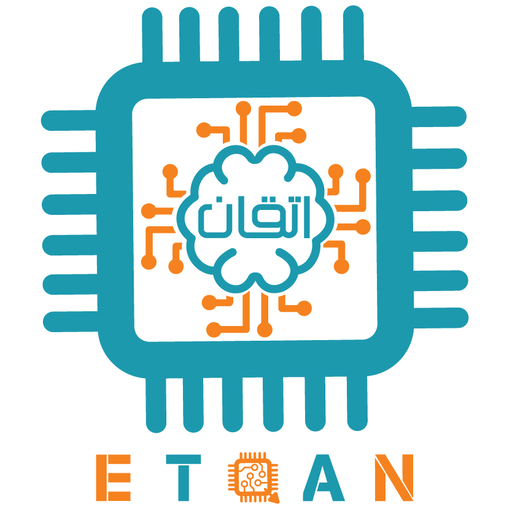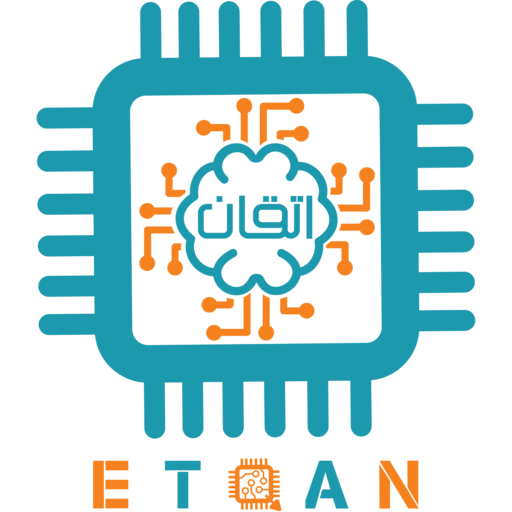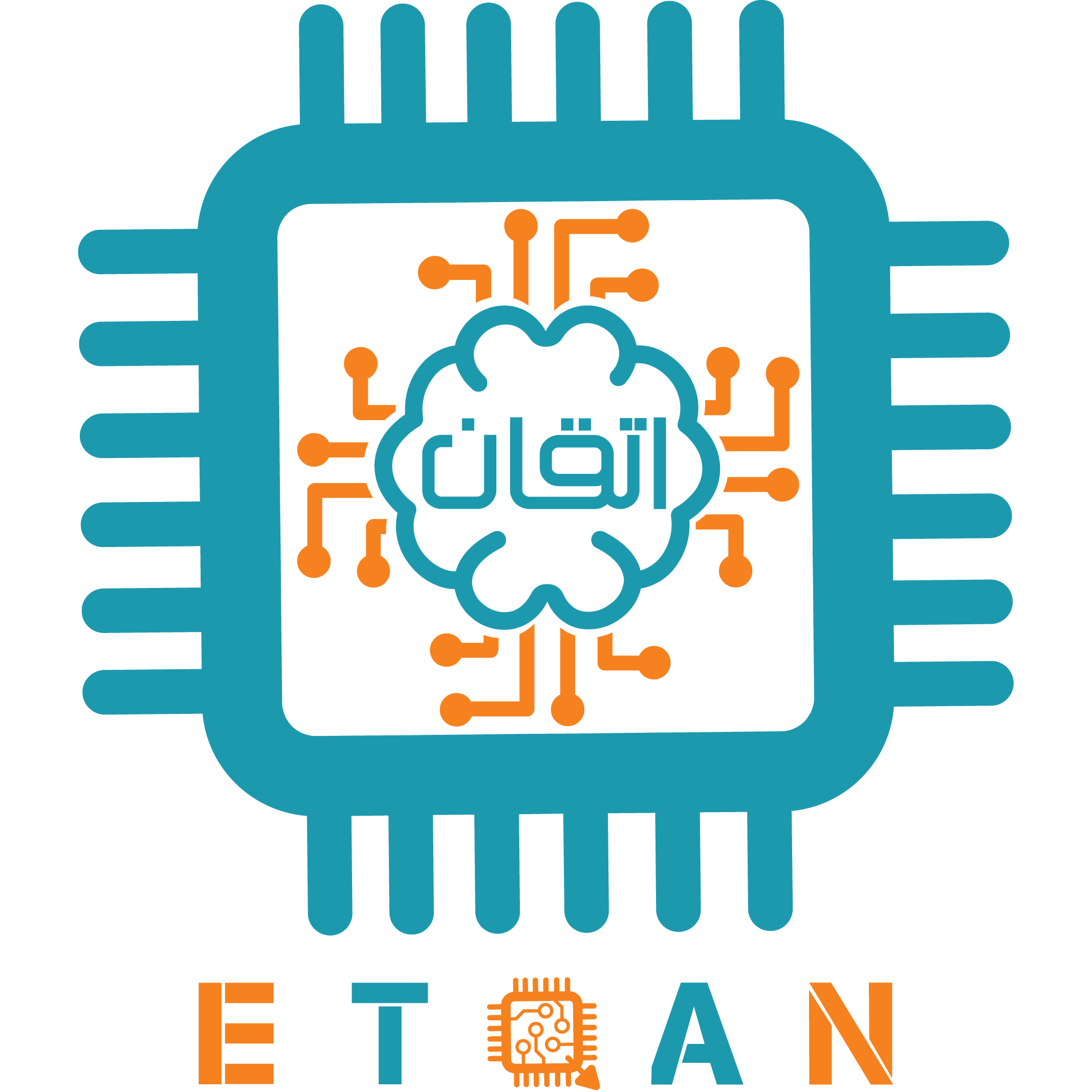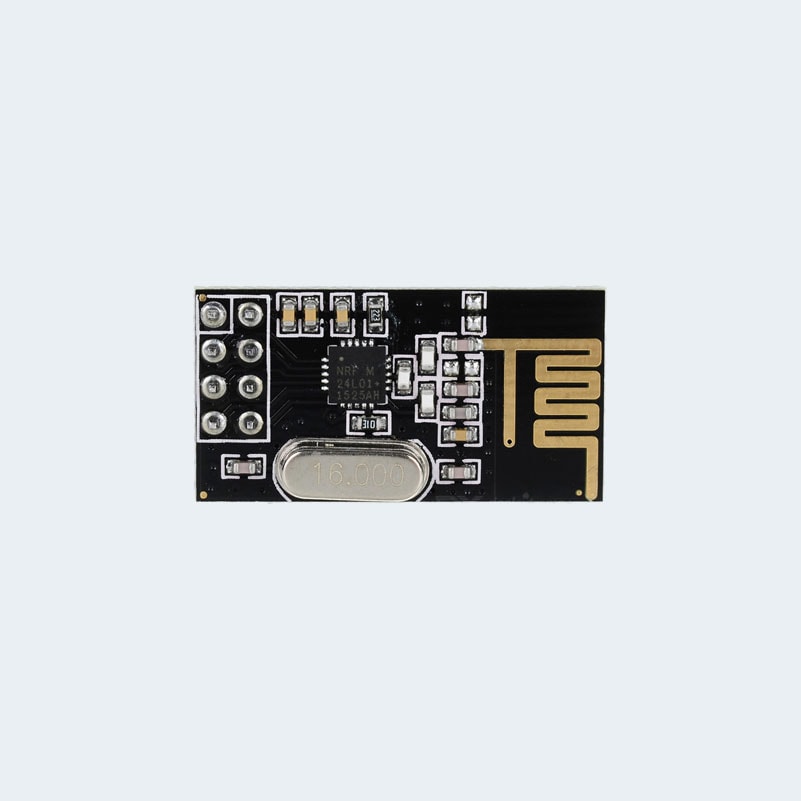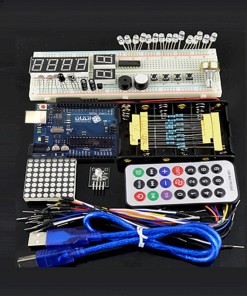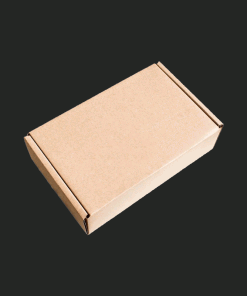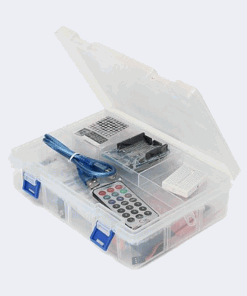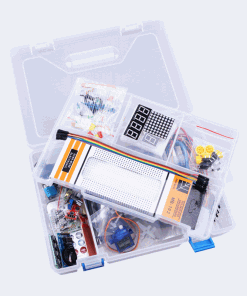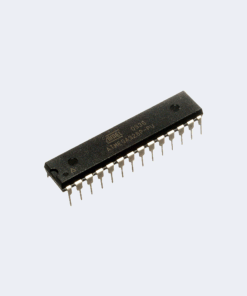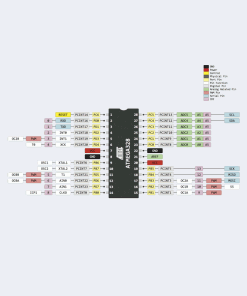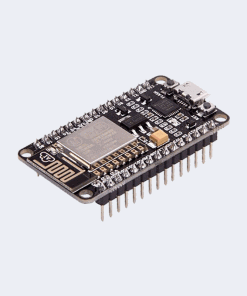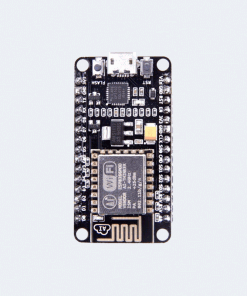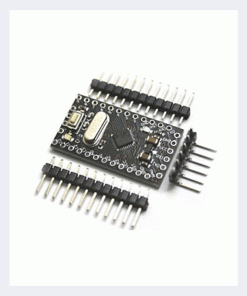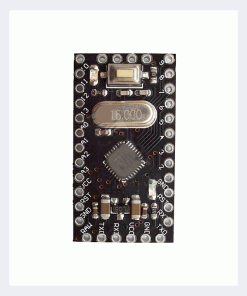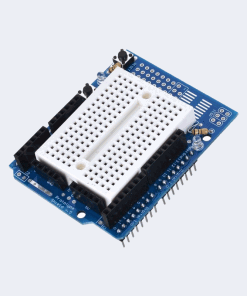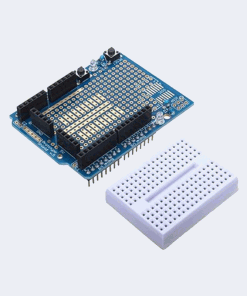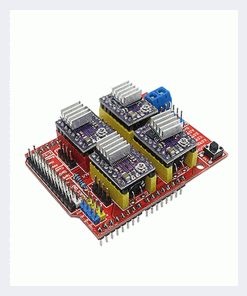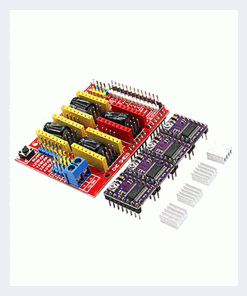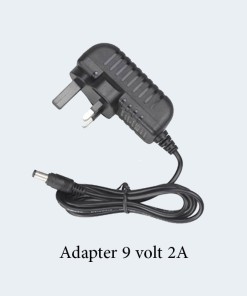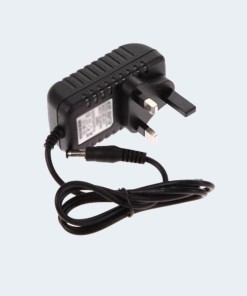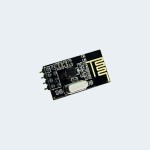
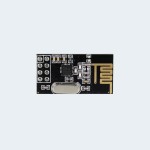
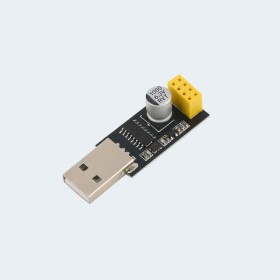
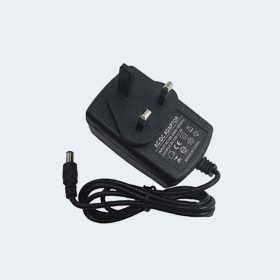
NRF24L01 Wireless Transceiver module
45 SAR السعر الأصلي هو: 45 SAR.29 SARالسعر الحالي هو: 29 SAR. 29 SAR
متوفر في المخزون
NRF24L01 Wireless Transceiver module 2.4GHz
The nRF24L01 is a highly integrated, ultra low power (ULP) 2Mbps RF transceiver IC for the 2.4GHz ISM (Industrial, Scientific and Medical) band. With peak RX/TX currents lower than 14mA, a sub μA power down mode, advanced power management, and a 1.9 to 3.6V supply range, the nRF24L01 provides a true ULP solution enabling months to years of battery lifetime when running on coin cells or AA/AAA batteries. The Enhanced ShockBurst™ hardware protocol accelerator additionally offloads time critical protocol functions from the application microcontroller enabling the implementation of advanced and robust wireless connectivity with low cost 3rd-party microcontrollers.
The nRF24L01 module integrates a complete 2.4GHz RF transceiver, RF synthesizer, and baseband logic including the Enhanced ShockBurst™ hardware protocol accelerator supporting a high-speed SPI interface for the application controller allowing easy interface to microcontrollers and is ideal for low cost communication between Arduino compatible devices.
Worldwide 2.4GHz ISM band operation
• Up to 2Mbps on air data rate
• Ultra low power operation
• 11.3mA TX at 0dBm output power
• 12.3mA RX at 2Mbps air data rate
• 900nA in power down
• 22μA in standby-I
• On chip voltage regulator
• 1.9 to 3.6V supply range
• Enhanced ShockBurst™
• Automatic packet handling
• Auto packet transaction handling
• 6 data pipe MultiCeiver™
VCC of the module must be connected to a supply in the range of 1.9 to 3.6V. Connecting the module to the Arduino’s 5V supply will damage it. The module has 5V tolerant DIO and therefore it is safe to directly interface it to an Arduino board’s 5V DIO. Please also be aware that in the past we have seen cases where the modules peak transmit power is in excess of what the 3.3V supply on an Arduino board is capable of supplying. We therefore suggest that when powering the module directly from an Arduino board that you attach a 10uF or greater capacitor across the modules VCC and GND pins.
